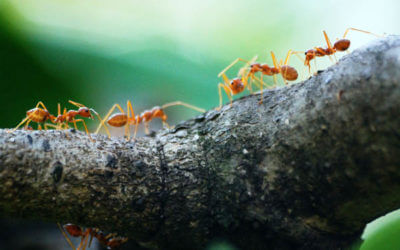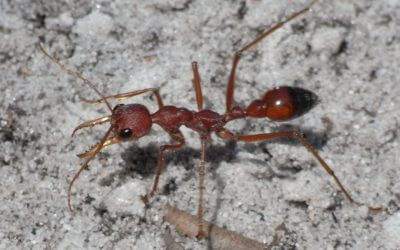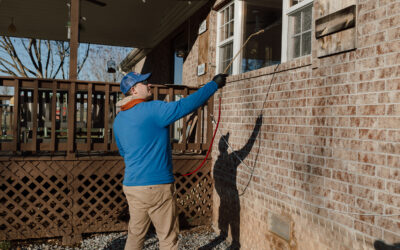
Keeping Ants Away From Your Garden
Ants are a common sight in gardens, but their presence isn’t always welcome. While some ant species can be beneficial predators, many become garden pests when they disrupt plant growth or attract other harmful insects. This guide explores various methods to keep ants at bay and protect your precious greenery.
Understanding the Problem: Ant Species and the Damage They Cause
Several ant species can become garden nuisances. Here are a few common types and the issues they present:
Carpenter Ants: These large ants tunnel through wood, potentially damaging decks, fences, or even sheds near your garden.
Acrobat Ants: Acrobat ants love sugary plant secretions and often protect aphid colonies, feeding on the sugary waste that aphids produce, which is sometimes referred to as “honeydew”.
Fire Ants: Fire ant bites are painful and can cause allergic reactions. Their presence disrupts the ecosystem, and discourages beneficial insects.
Leafcutter Ants: As the name suggests, leafcutter ants cut foliage to cultivate fungus “gardens” underground. This can cause significant damage to ornamental plants.
Beyond direct damage, ants can create pathways in the soil, affecting water retention and root growth. They may also compete with plants for resources, hindering overall garden health.
Why Ant Control Matters: More Than Just a Nuisance
One of the biggest concerns with ants in the garden is their connection to aphids. Aphids are tiny, sap-sucking insects that weaken plants. Ants “farm” aphid colonies, protecting them from predators in exchange for the sugary honeydew that aphids produce. By controlling ants, you can indirectly control aphid populations and protect your plants.

DIY Ant Repellants and How They Work
There are a variety of methods for DIY ant removal, including creating a vinegar solution spray and applying it to ant trails to disrupt scent communication. Sprinkling cayenne pepper around the perimeter of your garden or near ant entry points can also repel them from entering the garden.
You can also purchase ant traps, which contain a sweet bait that attracts ants. The ants carry the bait back to the nest, ultimately killing the queen and disrupting the colony.
Unfortunately, DIY pest control methods can be unreliable, and when used incorrectly, even dangerous to you, your family, and desirable plants and insects in your garden.
When to Call a Professional Pest Control Service
While the methods mentioned above can be efficient deterrents, there are situations where professional help becomes necessary.
If you’ve noticed extensive ant trails, multiple ant nests, or overwhelming ant activity throughout your garden, a professional can assess the situation and develop a targeted plan to eliminate the entire colony.
Additionally, if you’ve tried various DIY methods without success, or the ants keep coming back, a professional can identify the specific species and their entry points, leading to a more permanent solution.
Professionals have the knowledge and experience to tackle even complex ant infestations. They can identify the specific ant species and use targeted control methods for maximum efficacy. By letting professionals handle your ant infestation problem, you can enjoy some peace of mind and work in your garden worry-free. If that sounds good to you, reach out to the experts here at West Termite & Pest today!
Call your local West Termite location or fill out the form
on our contact page to schedule your inspection today!
More posts from West Termite, Pest & Lawn
Pestproofing Entry Points Before Spring
As spring approaches in Arkansas, homeowners face an increased risk of pests seeking warmth, food, and shelter. Many infestations begin with small, unnoticed entry points that allow insects, rodents, and other pests to move indoors. Pestproofing your home before the...
Early Spring Termite Activity in Arkansas
As Arkansas begins to warm in early spring, homeowners may assume termites remain dormant until the summer months. In reality, spring termite colonies can become active much earlier, especially as soil temperatures rise and moisture levels increase. Subterranean and...
Preparing Your Home for Early Spring Pests
As winter fades and temperatures rise in Arkansas, homes become vulnerable to a fresh wave of early spring pests. Early spring is a critical time to take preventive action because insects, rodents, and other pests start emerging from dormancy, seeking food, warmth,...



